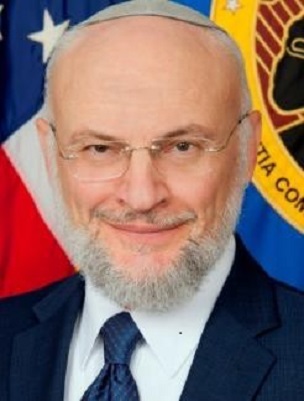Best Practices for Designing and Conducting Cyber-Physical-System War Games

Abstract:
Cyber war games have been shown to be useful for a broad range of purposes. The authors describe and compare methods for designing realistic war games in the domain of Cyber Physical Systems (CPS), review general methods for conducting war games, and illustrate best practices to assist researchers and practitioners in planning their own war games. This paper reflects the experiences, research, and insights of two organisations: the U.S. Army Research Laboratory and Carnegie Mellon University’s Software Engineering Institute. The authors illustrate the advantages of their methodologies and the challenges to be considered when designing realistic simulations.
AUTHORS

Computational and Information Sciences Directorate U.S. Army Research Laboratory
Adelphi, MD, U.S.A.
Daniel T. Sullivan received a BS degree in electrical engineering from the University of Illinois in 1983, and an MS degree in electrical engineering from the Naval Postgraduate School in 1992. He is a Certified Information Systems Security Professional (CISSP), Certified Ethical Hacker (CEH), and Global Industrial Cyber Security Professional (GISCP). He is the co-inventor of one patent, a senior principal software engineer at the Raytheon Company, and a member of the ICF International team supporting the US Communications-Electronics Research, Development and Engineering Center (CERDEC) in Adelphi, MD. At CERDEC, he researches methods to defend Army cyber- physical systems.

Computational and Information Sciences Directorate U.S. Army Research Laboratory
Adelphi, MD, U.S.A.
Dr. Edward Colbert Dr. Edward Colbert leads security research on methods for defending Army control systems and Internet of Things (IoT) systems in the Network Science Division at the US Army Research Laboratory (ARL). Before working at ARL, Dr. Colbert performed telecommunications research for the Department of Defense, Verizon, and the Johns Hopkins University Applied Physics Laboratory.

Computational and Information Sciences Directorate U.S. Army Research Laboratory Adelphi, MD
U.S.A.
Alexander Kott earned his PhD in mechanical engineering from the University of Pittsburgh, Pittsburgh, PA, in 1989, where he researched AI approaches to invention of complex systems. He serves as the US Army Research Laboratory’s Chief Scientist in Adelphi, MD. In this role, he provides leadership in developing ARL technical strategy, maintaining technical quality of ARL research, and representing ARL to the external technical community. Between 2009 and 2016, he was Chief of the Network Science Division, Computational and Information Sciences Directorate, ARL, and was responsible for fundamental research and applied development in network science and science for cyber defense.
Published In
Journal of Information Warfare
The definitive publication for the best and latest research and analysis on information warfare, information operations, and cyber crime. Available in traditional hard copy or online.
Quick Links
Archive

